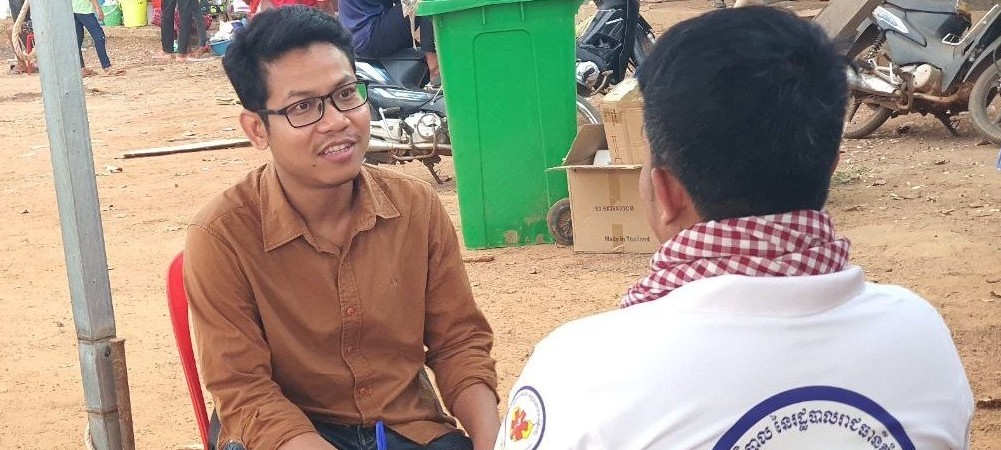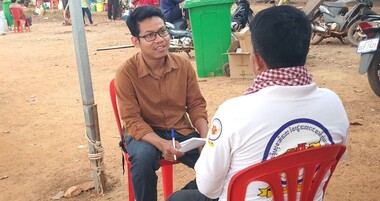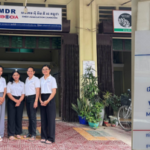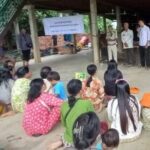
“The biggest challenge is stigma”
37-year-old Seyha Toch is a clinical psychologist at EMDR Cambodia and one of only 100 psychologists in the country. What has his experience been like after stepping into this position?
“I wanted to work closely with communities and people,” Seyha Toch replies when asked what motivated him to work for EMDR. The Cambodian mental health specialist with a Master’s degree in Clinical and Counseling Psychology from the Royal University of Phnom Penh had worked for two universities and two international NGOs before joining this local association of psychologists.
Initially, he worked at EMDR Cambodia as a therapist. After that, he was appointed project manager, but continues to treat clients to stay in practice and keep his feet on the ground. Seyha Toch also enjoys supporting university students, even though he doesn’t earn anything from it. “It is very difficult for them to find a supervisor,” he says. The students have to find a suitable professional themselves in a country where the few psychologists are already very busy. “I completed a practice course in supervision in the U.K. and found it very useful for Cambodian students as well. That’s why I’m now passing on my knowledge”, the psychologist continues.
With appropriate mental health techniques, people learn to cope better with their circumstances. Life can change when you accept yourself.
Affected by stigmatization
What was or is the biggest challenge for Seyha Toch in his work at EMDR? “It’s stigmatization,” he replies. “Most clients know they need help, but they’re afraid of what others might say and think,” he explains. They are so worried about losing their jobs that some prefer to forego treatment. Therefore, a large part of EMDR’s task is to raise public awareness of the importance of mental health. This is a very long-term task, but initial successes are being achieved through joint activities with various other organizations.
Complex psychological problems
Many psychological problems in Cambodia have their roots in the Khmer Rouge era. Trauma is particularly widespread among older people and is often passed on to the next generation. But there are also other psychological stresses like depression or anxiety in Cambodia. They are caused by fear of losing one’s job, problems in personal relationships, and much more. “With appropriate mental health techniques, people learn to cope better with their circumstances. They learn that spending valuable time with good people is more valuable than owning more and more material things. Life can change when you accept yourself”, Seyha notes.
Preventing mental health issues
The psychologist also sees the treatment of mental illness as an important form of prevention. He considers this obviation to be particularly important, especially in a country where there are so few mental health professionals. “Prevention is better than cure” also applies in Cambodia.
The psychological treatment at the EMDR offices is free. Participants are asked to make a donation according to their financial means. Please contact us on info@emdrcambodia.org or on the phone number of the closest EMDR office.










